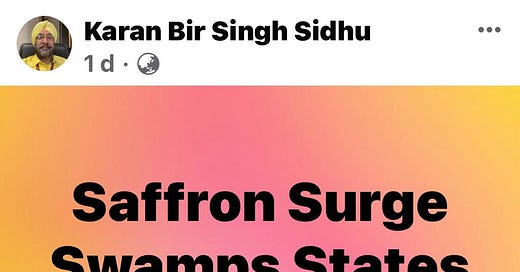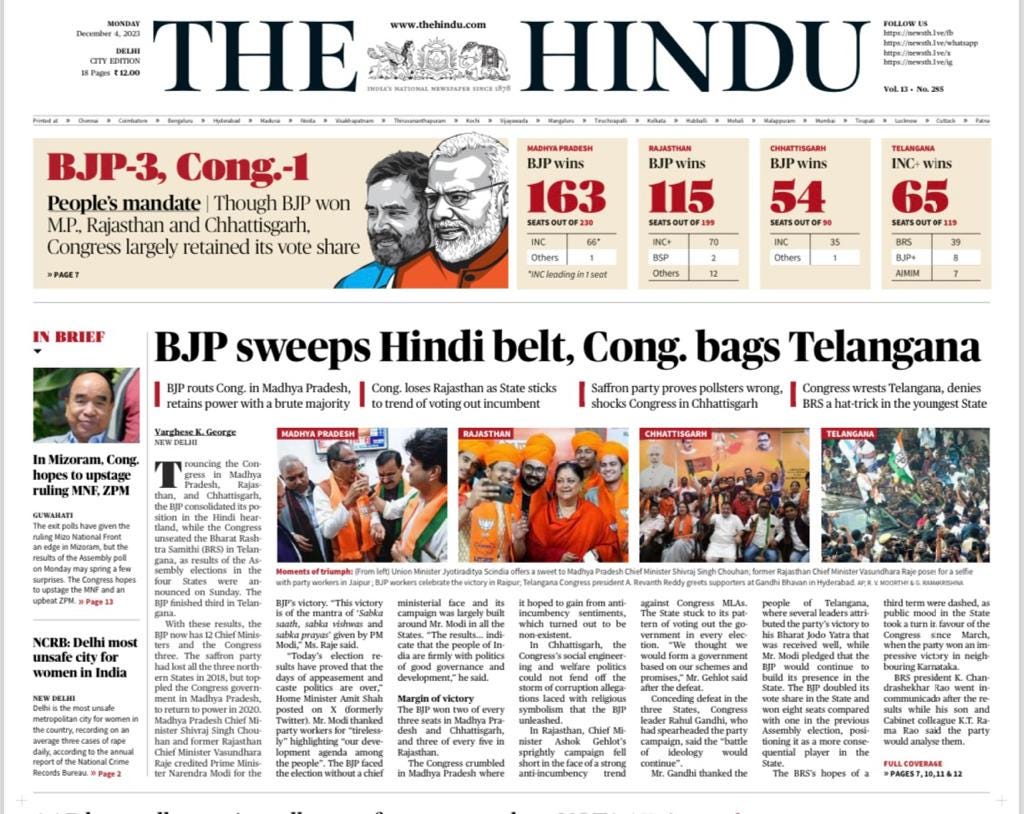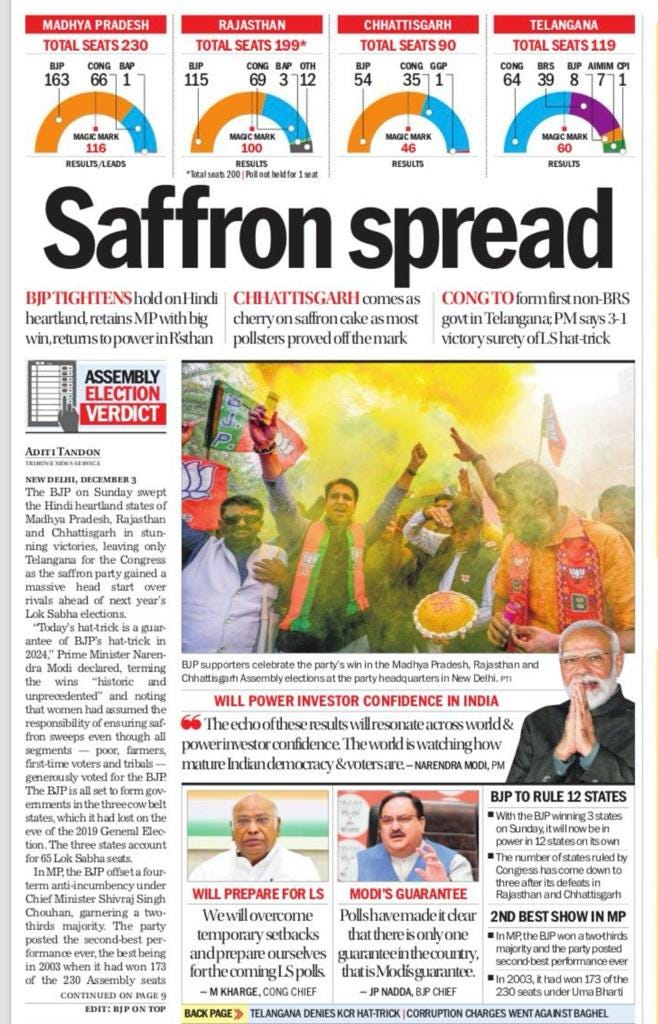"Three Weddings and a Funeral": BJP Triumphs in Rajasthan, Madhya Pradesh and Chhattisgarh; and Congress Coup in Telangana
Analyzing the Vidhan Sabha Election Outcomes and Implications for the 2024 Lok Sabha Elections.
Emphatic Victory in the Hindi Heartland: BJP's Triumph in Three States
In a scenario akin to 'Three Weddings and a Funeral,' the Bharatiya Janata Party (BJP) has clinched decisive victories in the Vidhan Sabha elections in the states of Rajasthan, Madhya Pradesh, and Chhattisgarh. Meanwhile, the runner-up, the Congress Party, demonstrated a respectable showing in terms of vote percentages. In Rajasthan, the BJP secured 115 seats with a 42% vote share, closely followed by Congress with 69 seats and a 40% vote share. In Madhya Pradesh, the BJP triumphed with 163 seats at a 49% vote share, while Congress garnered 66 seats, achieving a 40% vote share. Chhattisgarh saw the BJP winning 54 seats with a 46% vote share, compared to Congress’ 35 seats and a 42% vote share.
These outcomes underscore a tight political battle, marked by a narrow 2% vote difference between the leading party and its principal contender, highlighting the intricate and dynamic nature of Indian electoral politics.
Congress's Strategic Win in Telangana: Breaking the Regional Barrier
Contrasting the BJP's success, the Congress Party has made a notable breakthrough in Telangana, a state traditionally dominated by regional parties. The Congress managed to win 64 seats with a 39% vote share, surpassing the Bharat Rashtra Samithi's (formerly TRS) 39 seats and 37% vote share. This victory is significant as it challenges the perception of a rigid North-South political divide in India. The Congress's ability to wrest control from a strong regional party in Telangana indicates a shift in voter sentiment and the potential for national parties to make inroads in regions typically dominated by regional players.
The Fragile Nature of Electoral Majorities: A Cautionary Tale for the BJP
Despite the BJP's strong performance, there is a cautionary tale embedded in these results. The Party cannot afford complacency in the run-up to the 2024 Lok Sabha elections, as even a small swing in vote share from the BJP to the Congress could dramatically alter the political landscape. This was evident in the transition from the Vidhan Sabha elections of 2018 to the Lok Sabha elections of 2019 in Rajasthan and Madhya Pradesh, when BJP converted it’s lackluster performance of 2018 to a scintillating victory barely four months later. With the Congress securing over 40% of the vote share in these states, a marginal shift in voter preferences could lead to significant changes in electoral outcomes. This fragile nature of electoral majorities serves as a reminder of the dynamic and unpredictable nature of Indian politics.
Implications for the 2024 Lok Sabha Elections: A Balanced Perspective
The recent state election results, while indicative of current political trends, do not conclusively predict the outcome of the 2024 Lok Sabha elections. The difference in vote share between the BJP and Congress hovers around 2%, highlighting the potential for minor shifts to lead to dramatic changes in seat allocation. Additionally, the 'others' category, which plays a significant role in state elections, is likely to have a diminished impact in the national elections. These factors, combined with the diverse and evolving political landscape of India, suggest that the 2024 Lok Sabha elections could present a different scenario, potentially reshaping the national political narrative.
Conclusion: India as a Union of States – Unity in Diversity
The election outcomes in these states reflect the rich tapestry of India's democracy, where regional dynamics and national trends coexist and interact. The victories of the BJP in the Hindi heartland and the Congress in Telangana exemplify the diverse political inclinations across India's states. As the nation progresses towards the 2024 Lok Sabha elections, these results reiterate the importance of understanding and respecting the unique political, cultural, and social contexts of each state within the Indian Union. The future of Indian politics will likely continue to be shaped by this intricate interplay of regional and national forces, underscoring the essence of India as a Union of diverse and distinct States.
In simple words, the Lok Sabha outcome cannot be construed as foregone conclusion.







